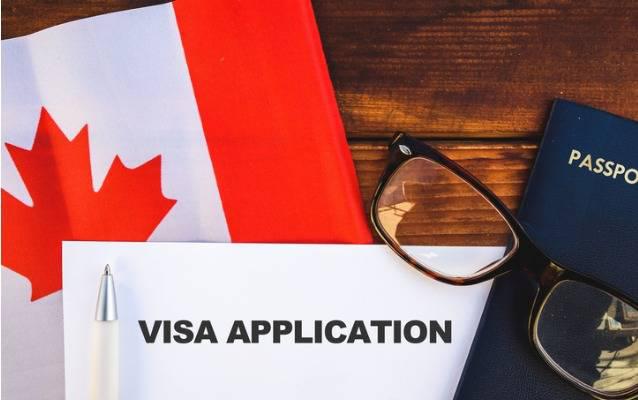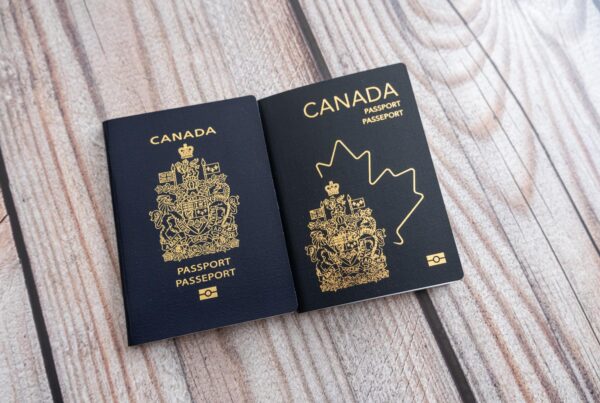Immigrating to Canada is a dream for many, and sponsorship can be a vital pathway to achieving this goal. Whether through family, employment, or other means, understanding the sponsorship process is essential. This comprehensive guide will walk you through the steps to secure sponsorship for immigration to Canada, providing insights into various sponsorship opportunities, the required documentation, and tips to maximize your chances of approval.
Navigating the Family Sponsorship Process
Family sponsorship is one of the most common ways to immigrate to Canada. This process allows Canadian citizens and permanent residents to sponsor their family members to join them in Canada. The family sponsorship program covers spouses, common-law partners, dependent children, parents, and grandparents.
To begin, the sponsor must meet certain eligibility criteria, including being at least 18 years old and residing in Canada. The sponsor must also demonstrate financial stability to support the sponsored family member. This involves providing proof of income and, in some cases, signing an undertaking to financially support the sponsored person for a specific period.
The application process involves two main stages: the sponsorship application and the permanent residence application. Both applications must be submitted together. The sponsor must submit the sponsorship application, while the sponsored person completes the permanent residence application. These applications require various forms and supporting documents, such as proof of relationship, identity documents, and financial information.
Once the applications are submitted, they are reviewed by Immigration, Refugees, and Citizenship Canada (IRCC). If approved, the sponsored family member will receive permanent resident status. However, it is crucial to ensure that all forms are correctly filled out and all required documents are included to avoid delays or rejections.
Exploring Employment-Based Sponsorship Opportunities
Employment-based sponsorship is another significant pathway to immigrate to Canada. This involves securing a job offer from a Canadian employer who is willing to sponsor the immigration process. There are several programs under which employment-based sponsorship can be pursued, including the Temporary Foreign Worker Program (TFWP) and the International Mobility Program (IMP).
To secure employment-based sponsorship, the first step is to find a Canadian employer willing to hire and sponsor you. This often requires demonstrating that you have the skills and qualifications needed for the job. Once you have a job offer, your employer must obtain a Labour Market Impact Assessment (LMIA) from Employment and Social Development Canada (ESDC), unless the job falls under an LMIA-exempt category.
The LMIA is a document that confirms that there is a need for a foreign worker to fill the job and that no Canadian worker is available. Once the LMIA is approved, you can apply for a work permit and, eventually, permanent residence.
Building a Compelling Case for Sponsorship
Building a compelling case for sponsorship is crucial to increase your chances of approval. Whether you are applying for family or employment-based sponsorship, presenting a strong application is key. This involves providing detailed and accurate information, and supporting documents, and demonstrating that you meet all eligibility requirements.
For family sponsorship, include evidence of your relationships with the sponsor, such as marriage certificates, photos, and communication records. For employment-based sponsorship, highlight your skills, qualifications, and experience relevant to the job. Providing letters of recommendation from previous employers can also strengthen your case.
Preparing the Required Documentation
Preparing the required documentation is a critical step in the sponsorship process. The specific documents needed can vary depending on the type of sponsorship and the individual’s circumstances. However, some common documents include identity proof (passport, birth certificate), proof of relationship (marriage certificate, photos), financial documents (tax returns, bank statements), and job offer letters.
It is essential to carefully review the document checklist provided by IRCC to ensure you include all required documents. Missing or incorrect documents can lead to delays or rejection of your application. Additionally, all documents must be in either English or French. If any documents are in another language, you must provide certified translations.
Tackling Common Challenges and Delays
Sponsorship applications can face various challenges and delays. Understanding and addressing these common issues can help smooth the process. One common challenge is incomplete or incorrect applications. Ensuring that all forms are correctly filled out and all required documents are included is crucial to avoid delays.
In some cases, applications may be delayed due to additional background checks or security screenings. While these processes are beyond your control, being transparent and providing all requested information promptly can help expedite the process.
Staying Compliant with Sponsorship Regulations
Staying compliant with sponsorship regulations is essential to avoid issues with your application and ensure a smooth immigration process. This involves understanding and adhering to all requirements and conditions set by IRCC.
For family sponsorship, this includes meeting financial requirements and signing an undertaking to provide financial support for the sponsored person for a specific period. For employment-based sponsorship, involves maintaining your employment with the sponsoring employer and complying with the terms of your work permit.
It is also important to stay informed about any changes in immigration policies or regulations that may affect your sponsorship application. Consulting with a Canadian immigration lawyer can help ensure that you remain compliant and address any potential issues that may arise.
Maximizing Your Chances of Approval
Maximizing your chances of approval involves presenting a strong application, providing all required documents, and addressing any potential issues proactively. This includes demonstrating that you meet all eligibility requirements, providing evidence to support your case, and clearly explaining your intentions and plans in Canada.
Additionally, seeking professional guidance from a Canadian immigration lawyer can provide valuable insights and assistance throughout the process. An experienced lawyer can help you navigate complex regulations, prepare a strong application, and address any challenges that may arise.
Seeking Professional Guidance: When to Consult an Expert
Navigating the Canadian immigration process can be complex and challenging. Seeking professional guidance from a Canadian immigration lawyer can provide valuable assistance and increase your chances of success. An experienced lawyer can help you understand the requirements, prepare a strong application, and address any issues that may arise.
Consulting a Canadian immigration lawyer is particularly important if you face complex or unique circumstances, such as previous immigration violations, criminal records, or medical issues. A lawyer can provide personalized advice and representation to help you navigate these challenges.
Secure Your Canadian Dream: Partner with Joshua Slayen for Immigration Sponsorship Success
Whether you’re seeking family sponsorship or exploring employment-based opportunities, the expertise and advocacy of a seasoned professional can make all the difference. Joshua Slayen, a distinguished Canadian immigration lawyer, stands ready to guide you through every stage of the journey, from initial consultation to successful sponsorship approval. Don’t let uncertainty or complexity deter you from pursuing your Canadian dream. Contact us today to embark on your immigration odyssey with confidence and clarity, knowing that you have a trusted ally by your side every step of the way.









